Let technique be your “gateway drug” to making music
By Jon Liebman
Week of October 4, 2021
When setting out to learn bass, the goal should be to learn how to groove and to make music. Naturally, in order to make that happen, you’ll need to apply a certain amount of bass technique to your playing. But when either one of those things becomes disproportionately favored over the other, the required balance is lost and a real problem ensues.
I got to thinking about the topic a couple weeks ago after a conversation I had with Billy Sherwood for this week’s FBPO interview. If you don’t know Billy, he’s been around a long time and has done a lot of high-level stuff in the music world. Most notably, he took over the bass and backup vocal duties for Chris Squire in Yes and is prominently featured on the band’s just-released new album, The Quest, their first-ever without Squire.
In addition to all the wonderful things he had to say about Chris and the strong friendship the two shared, Billy offered up some great advice for learning bass. What he had to say was not only important, but it’s all too often overlooked and misunderstood by people who want to learn bass.
Ask yourself the following questions:
• Do you know where all the notes are on the bass?
• How easily can you access whatever you need on the instrument, whenever you need it?
• How do you even know whether or not you need it at all?
• And when you do ultimately find whatever you think you need, what do you do with it?
It all comes back to that balance. Learning bass technique is a means to an end. The reason you’re developing your technique is so you can apply it to making music. It’s easy to fall into the trap of becoming “chops crazy” on the bass, but that’s not going to help the music and, to put it bluntly, it’s not going to make you an in-demand bass player. You need to build your technique responsibly, starting with the fundamentals.
“The fundamentals are so important,” Billy says, “knowing the scales, knowing where the notes are, understanding if someone calls out an F-sharp, you can play it anywhere on the axe.”
No argument there. But it’s also important to know why you’re playing an F-sharp and how that note helps the song.
“What I teach a lot of guys who just want to play with their jam band,” Billy says, “is just the fundamentals of knowing your chords and knowing the position of things on the bass, where F is everywhere on the bass, where G is everywhere on the bass.”
What Billy’s saying is vitally important. Do what he says, but then take it a step further, focusing on the music itself. Don’t just blindly play that F or G without knowing why. Every note is chosen for a reason, and the components that make up a piece of music all fit together in a certain way. You don’t want to become a robot or a “button-pusher.”
“It’s funny,” Billy continues, “because I forgot how much I had learned over these many, many decades, so that stuff is totally second nature.”
That’s where Billy really hit the nail on the head! If you’re thinking technique, or theory, or hand placement, or… whatever, while you’re playing, then you haven’t got it yet. Get the fundamentals down and let them become second nature. That’s the ideal way to put yourself in a position where you can best serve the music.
“You can’t just… jump right into playing and be an efficient player if you’re trying to play with a band that’s moving the chords around,” Billy says. “You got to know where things are, you know?”
Right again. But look deeper. The chords are moving around for a reason. Think about the relationships between the chords and how they help tell whatever story you’re trying to convey through the music.
The fundamentals of learning bass technique are important, to be sure. Just don’t lose sight of why they’re important and the amazing potential you’ll have as a bass player once you understand how to apply those fundamentals to making the music sound and feel infinitely better than someone who’s just merely going through the motions.
What about you? Have a thought on the subject? Leave a comment below and let me know what you think. In the meantime, check out my interview with Billy here.
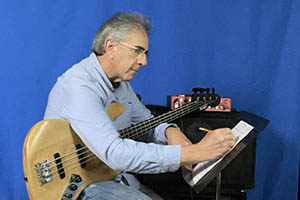
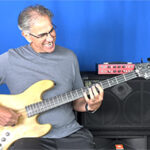
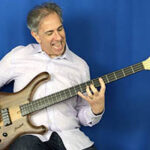
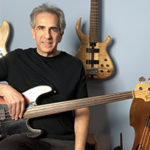
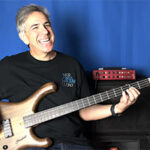
Great article. Thank you.
Thanks, Elex! Always great to hear from you!
Jon thanks for the insight…. Your All Over It, I know where The Notes Are But My Finger Placement n Technique Are Not There (I struggle with looking at my fingering while I play) Making it difficult to read n play….
Need Your Help
Thanks, James. Let’s talk!
Excellent article! Fingerboard memorization is admittedly my weak point, but I’m working on it. Having a wife that plays keyboard helps. She keeps me honest!
Love it! Thanks, Joe!